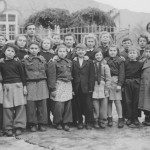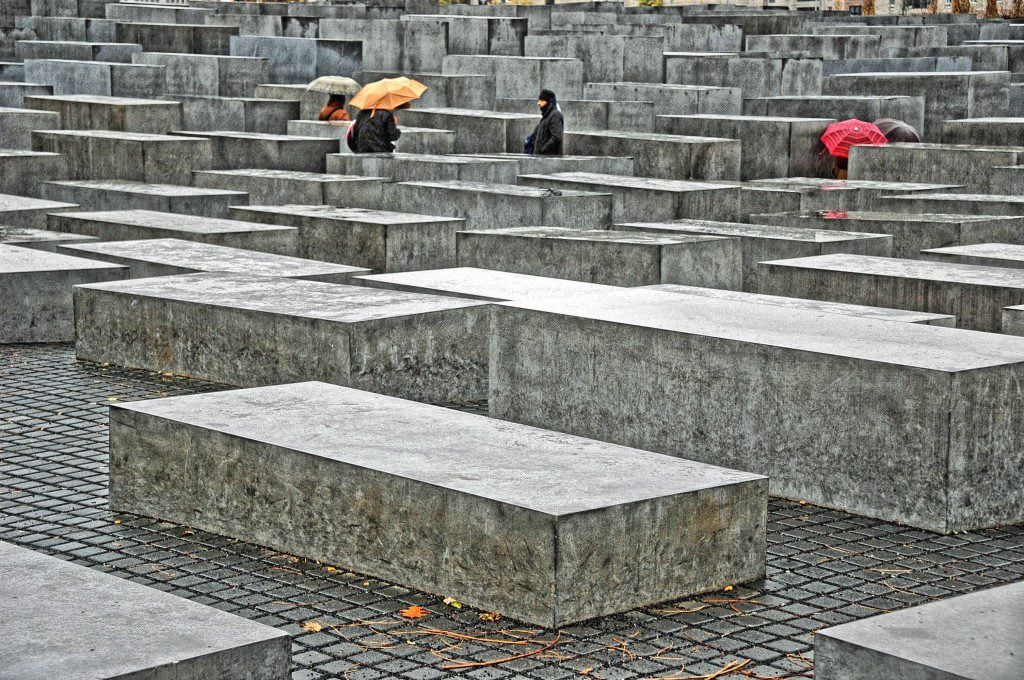Yes, and no, and “depends on what the meaning of ‘stopping the Holocaust’ is.”
If you’ve been following U.S. presidential campaign news, and you’re probably better off if you haven’t, you know that the other day Ben Carson was questioned, in a CNN interview, about a book excerpt that said,
“German citizens were disarmed by their government in the late 1930s and by the late 1940s Hitler’s regime had mercilessly slaughtered 6 million Jews and numerous others whom they considered inferior. Through a combination of removing guns and disseminating deceitful propaganda, the Nazis were able to carry out their evil intentions with relatively little resistance.”
Carson affirmed this in the interview:
“I think the likelihood of Hitler being able to accomplish his goals would have been greatly diminished if the people had been armed,” he told Wolf Blitzer when asked if there were no gun-control laws in Germany would that have prevented the murder of 6 million Jews. “I’m telling you there is a reason these dictatorial people take the guns first.”
To which, predictably, there has been a huge outcry, asserting that Carson was reprehensibly “blaming the victim”, and saying that the Jews were so hopelessly outgunned that it’s fanciful thinking to imagine that they could have provided meaningful resistance even if they were armed, pointing to, for example, the heroic but doomed Warsaw Ghetto Uprising, during which, as BBC notes,
In 1943, armed Jews in the Warsaw ghetto fought the Nazis. Jews killed about 20 Nazis, but about 13,000 Jews died in the uprising.
And, yes, of course, it’s indisputable that the resistance to the Nazis in the ghetto was a failure, if measured by the number of Nazi soldiers killed. But that wasn’t the point of it: the Jews knew they had no hope of surviving; they also knew that certain death awaited them in Treblinka (because, contrary to popular belief, the selection of the healthy for work did not occur at all camps; at Treblinka, to which the Jews of Warsaw were being shipped, and similar camps such as Sobibor and Belzac, all Jews except for minimal work details were killed immediately), so that resistance in the ghetto was a means of preserving their dignity, a resistance for its own sake, following the poetic command, “Do not go gentle into that good night.”
There are also instances where resistance was not, per Star Trek, futile: most partisan groups in Poland and the East were gentiles, but there were others consisting of Jews, or which welcomed Jews into their group. One such group, led by the Bielski brothers, was featured in the film and book Defiance, which I recommend for reading and viewing (and not just because it featured Daniel Craig). My son has upstairs on his bookshelf a Scholastic-published book, We Fought Back, about teen Jewish resisters.
And even in the most desperate of circumstances, the Sonderkommandos, the Jewish prisoner-workers at the death camps at Treblinka and Sobibor, fought back. (See Wikipedia for details on Treblinka and Sobibor, a well as A Promise at Sobibor, a gripping memoir of the events there.)
Is it “blaming the victim” to celebrate these people? To say that these actions, to however small a degree, saved lives?
It is undeniable that, time and again, if you read the literature, you see Jews complying with orders because the magnitude of what as in store for them was utterly incomprehensible. The memoir above describes the efforts made to keep Jews from the West in the dark as to their fate when the disembarked from the trains at the death camps, being given claim tickets for the jewelry they were ordered to remove prior to their “showers” (or, in a lazier variant, told to remember their claim number) while Jews from Poland, once reports had made their way back to the ghettos, were treated with brutality instead. Prior to deportation, in the ghettos, conditions were dire, leading many Jews to show up at the deportation collection site grasping to the slim reed of hope that the promise of bread was true — and yet trying to live underground, with false documents or a struggle to find others to hide them, and apart from family who weren’t as lucky, was often so distressing that memoirs record people returning into the ghetto to face their fate, whatever it might be, with family, rather than without them. Of course, the Holocaust wasn’t just death camps; before they were established, the Einsatzgruppen mobile killing squads carried out massacres throughout the newly-conquered East, including the Babi Yar massacre perhaps most famously, but in countless small villages as well; again, through deception, the Jews had no idea what awaited them until it was too late — though I also recall reading, in (I think) this book, speculation that the Jews in Eastern Europe were particularly poorly equipped to resist these massacres because of the nature of the culture of the shtetl, in which Jews were isolated, Talmud study was prized, and there was a certain pacifism and fatalism to how they were conditioned to react to events.
But these were all conquered territories. What about Carson’s central claim: that, had there been a tradition of gun-ownership among the Jews of Germany, they would have been able to fight back?
No, actually, that’s not Carson’s central claim; all he really says is that totalitarian regimes disarm their people; there’s nothing deeply profound in saying that. Also note that in the National Review’s telling of the story, a Weimar Republic-era gun registry was used to seize guns from Jews as well as politically-unreliable Germans, with a further sweep to confiscate guns from Jews in the weeks preceding Kristallnacht. Was there a point at which German Jews could have, or should have made a stand, and fought off the SS with their handguns or hunting rifles? Of course not — especially since the confiscation happened in 1938, prior to deportations or any reason to suspect they were in mortal danger. Salon tells basically the same story but with a different emphasis: that Weimar had tighter gun control than the Nazis, presumably in response to the various street battles between Nazis and Communists and other political groups, and the Nazis began allowing politically-reliable Germans greater freedom to own guns.
Hindsight is 20/20, but there are important questions about what we do now, in the present day. Should we train ourselves to fight back, or “shelter in place”? Should we register guns, or is there a risk of a new regime misusing the registry? And, more than that, I think part of the reason why I read these Holocaust narratives is that they raise the question: would I have had the strength, mentally, to have fought, in one way or another, to survive?











